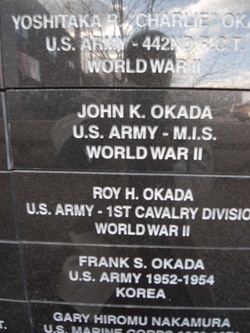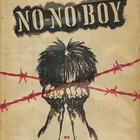Even after the war ended, Ichiro Yamada's mother still couldn't believe that Japan had lost. Ichiro was angry at her stubbornness and fanaticism, and at the same time, he was angry at his father's attitude of not correcting his mother's mistakes and instead keeping his distance from her.
In the fifth chapter, we see my father urging my mother to come to her senses for the first time. My mother had received heartbreaking letters from her sister and relatives living in Japan, asking if they could provide material assistance to her, as their lives were difficult due to the war.
However, my mother refused to even read these letters, saying that they were all fake and not really from my sister or any other relatives. My father thought that there was nothing he could do, but in order to sympathize with the repeated letters and to help my mother recover, he called my mother in with a rare firmness and urged her to read them.
When his mother still refused, his father read it to her, while Ichiro watched nearby, hoping that maybe this would change something.
My father recited the contents of the letter aloud.
"... I don't want anything myself, but I would ask for the children, if you can, a little sugar, or some tinned meat, or some white powder to mix with water and make milk. And, I know I have already asked this, but if you could manage to get some sweets with it, it would be a great help and the children would be delighted."
My mother insisted that it was a lie and refused to accept the contents. My father had no choice but to read further. It was an episode from the sister's childhood in Japan. In other words, it was very personal information that only the sisters would know, and it was also evidence that the letter had clearly come from my sister.
This confused my mother and made her speechless. This made my father even more anxious. After a while, my mother picked up the letter and read it herself. She then insisted that my sister had been tortured into writing it, and disappeared into her bedroom.
Parents who ruined my life
Then his father began to regret what he had done to his mother. Ichiro was angry at his weakness. His father drank alcohol to ease his anxiety. Eventually, he shut himself in the bedroom and spoke to his mother, who remained motionless.
"The letter, mother, is nothing. . . . Your sister would never write such a letter. You said so yourself. Don't believe it. Now eat, and forget this nonsense."
His father's change of attitude made Ichiro even more angry, and he began to curse him violently. Ichiro himself felt sorry for his mother, but he was also irritated by his father's behavior and the inseparable relationship he had with his parents.
His father worries about his mother but does not understand the problems Ichiro is facing.
"...If it was wrong for you to go to prison, it's over. It's all over. But what happened to your mother is much more serious and much more difficult."
And then Ichiro's anger explodes.
"My life has been ruined because of my father, my mother and Japan. Don't you understand?"
Ichiro hopes to go to Portland with Kenji as soon as possible, as he promised, to find a new life there.
A heartbreaking question to my mother that will never come true
Naturally, Ichiro's mother feels resentment towards Kenji, who has gone to war as an American soldier, and warns Ichiro.
"That child is not Japanese. He fought against us. He brought shame to his father and mother and ruined himself. He was unlucky not to have been killed."
Hearing this, Ichiro is disappointed, but at the same time he feels pity for his mother, whose heart has become twisted. He sympathizes with his mother, whose mind has become twisted as a result of coming to America, and confesses the things he wishes he could have asked his mother as a son.
"Mom, will you tell me who you are? What it means to be Japanese? I'm sure you had a childhood too. You've never told me any of this before. Come, now please tell me so I can understand a little. Tell me about the house you lived in, and your father and mother - my grandparents. I never met them, I didn't know them, because I don't remember them, except that I was told they died a long time ago. Tell me everything, just a little, just a little bit - about their lives and your life and the time before mine came together. There must be something there. We have time now, there are no customers, it's just you and me. Come on, tell me from the beginning, about the time when your hair was straight and black. About the time when everyone around you was Japanese. You were born in Japan, and America wasn't yet a country across the ocean to make money, or a hated enemy. Hurry, come on, mom, what was the name of your favorite teacher at school?"
It is also a sad phrase that indicates the severance of the parent-child relationship between the first and second generation.
(Translation by the author)
© 2016 Ryusuke Kawai







